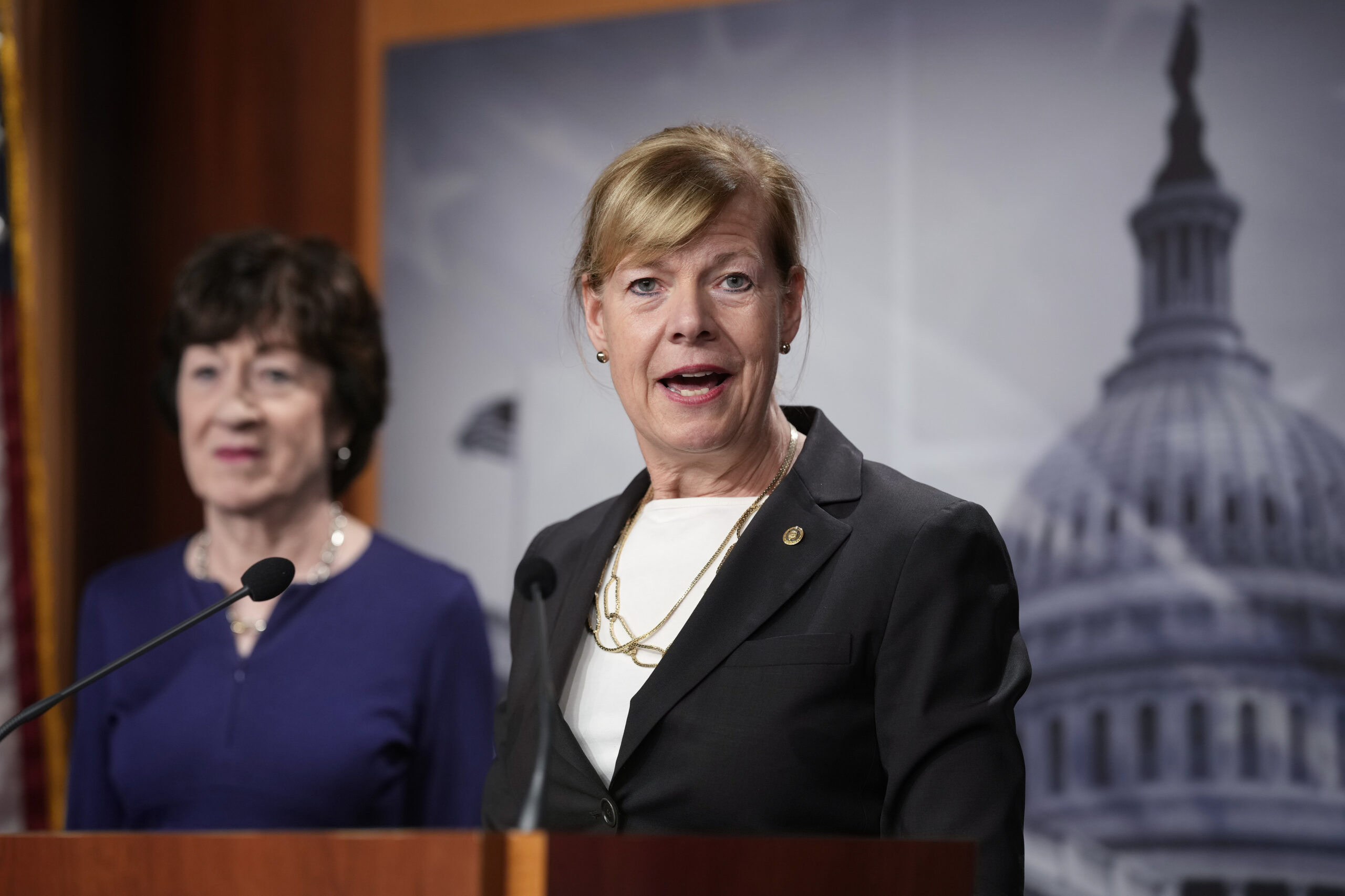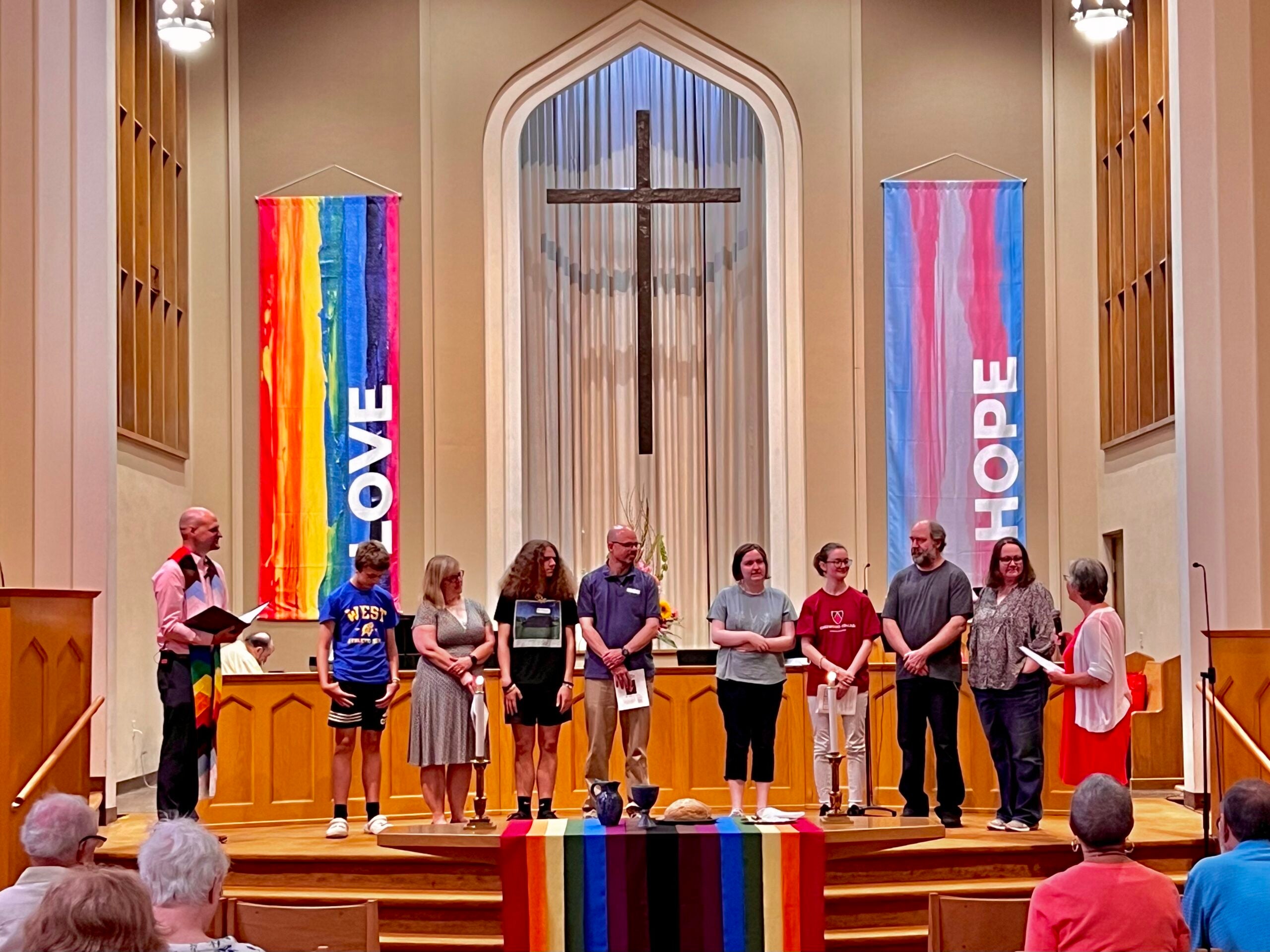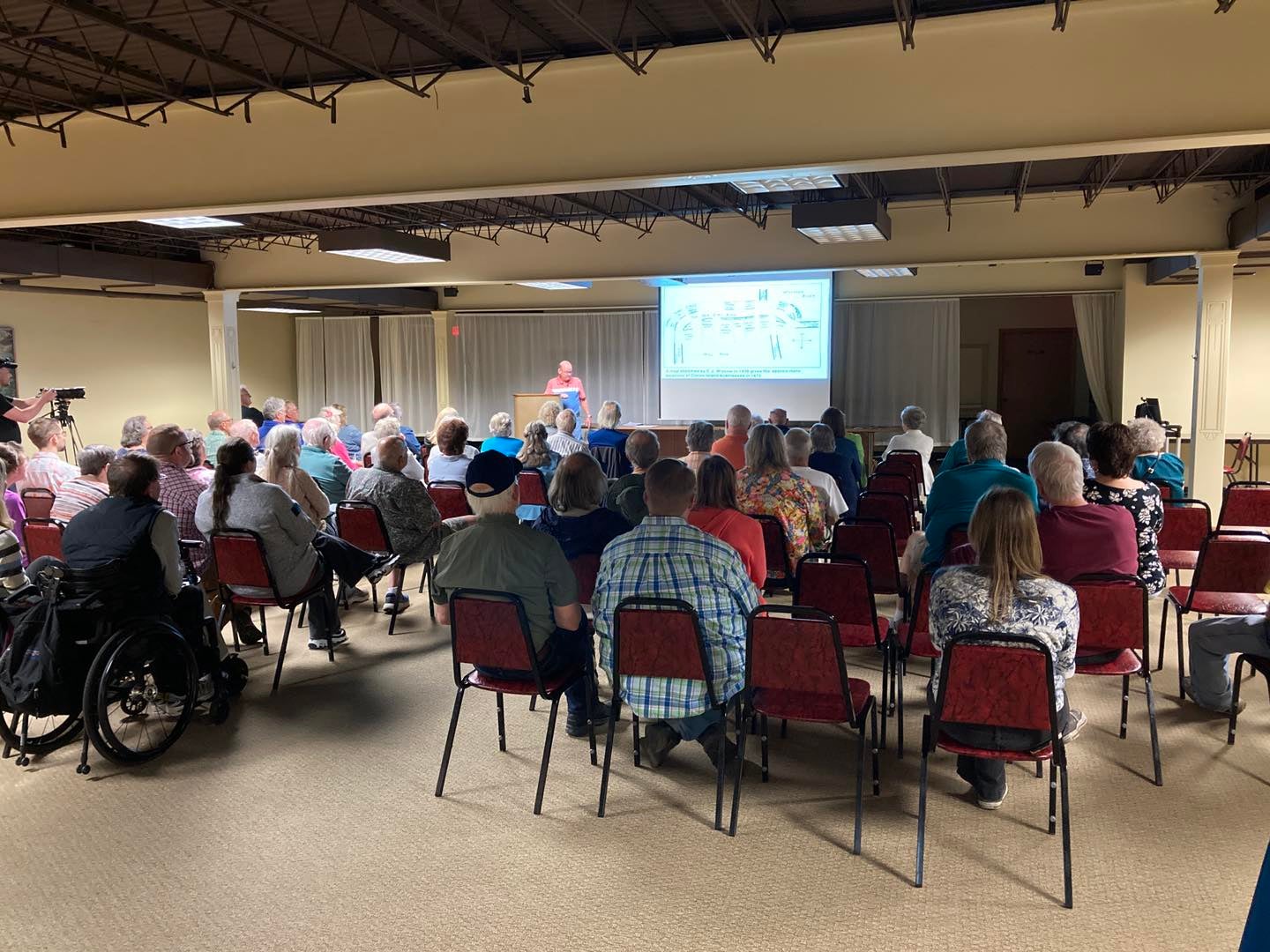Same-sex couples in Wisconsin expressed relief after the U.S. Senate passed a bipartisan bill, sponsored by Democratic Sen. Tammy Baldwin, on Tuesday to protect gay and interracial marriages.
The Respect for Marriage Act mandates all states recognize marriage licenses issued to gay couples in other states. The legislation would bar states from denying them eligibility for federal benefits. It repeals the 1996 Defense of Marriage Act, which defined marriage as a union between one man and one woman.
“I think that it’s important to reflect on the tireless advocacy of many in, particularly in the LGBTQ community, who have been fighting for partnership recognition and marriage equality for literally decades,” Baldwin said at a news conference after the bill passed.
News with a little more humanity
WPR’s “Wisconsin Today” newsletter keeps you connected to the state you love without feeling overwhelmed. No paywall. No agenda. No corporate filter.
Votes broke 61-36 in a chamber where Democrats hold a slim majority. All Democrats and 12 Republicans joined Baldwin, the first openly gay senator, in supporting the bill.
Baldwin fought to shepherd the first version of the bill through Congress for over a decade, even as some states failed to recognize same-sex marriages.
But some LGBTQ+ advocates like Justin Roby wish the bill had passed with unanimous support.
“It’s hard to contextualize the joy to have a human right codified by law,” Roby, who works for the LGBTQ+ health and equity nonprofit Diverse & Resilient, said. “But this, let’s be clear, it took too long to get to. So while we are enthused that we now have this right, solidified again, we are disheartened that it took all of this, and we didn’t have a unanimous vote.”
Republican U.S. Sen. Ron Johnson opposed the bill on the grounds that the Court already protected same-sex marriage when it ruled on Obergefell v. Hodges in 2015. In mid-November, he commended members of his party for pushing to add religious exemptions to the bill passed Tuesday.
“The Democrats continue to use this to create a state of fear over a settled issue in order to further divide Americans for their political benefit,” Johnson said in the November statement.
The passing of the Respect for Marriage Act comes after the U.S. Supreme Court this summer overturned Roe v. Wade, which protected the constitutional right to abortion. Justice Clarence Thomas suggested the high court “reconsider” some past rulings, including Obergefell, which legalized same-sex marriage.
Diane Giles and Gayle Clark-Taylor Giles live in Kenosha and have been together for 32 years. They wedded in 2004 in the Ontario province of Canada.
Gayle called the reversal of Roe v. Wade “devastating” and said it made her realize her marriage could be invalidated. Unlike Obergefell, the Respect for Marriage Act does not require states to issue marriage licenses to same-sex couples.
But the bill passing the Senate “felt wonderful,” she said, and signaled the country is “moving in a direction of safety, that our relationship is legitimate, legal and other people cannot be messing with it.”
The couple, in their mid-60s, also said the legislation allayed concerns that if one of them were to die, they wouldn’t run into legal issues as far as caretaking goes.
“It’s kind of a sigh of relief. I hope this will be the end of it. We’ve jumped through so many hoops and crashed through the barriers — we’re tired. To me, this is national validation,” Diane said.
For Steve Starkey, executive director of OutReach LGBTQ+ Community Center in Madison, the bill is a guardrail against future encroachment on gay rights, were the Supreme Court to overturn Obergefell. In 2014, a federal judge struck down a constitutional ban on same-sex marriage in Wisconsin, something Starkey said “made things really complicated for gay couples.”
“I wasn’t sure whether the Congress was able to get that passed this session, and I’m happy. I think it gives us an additional safety net,” he said.
But Starkey said he was “kind of saddened” that lawmakers had to add exemptions for religious organizations for the bill to pass. The legislation protects the tax-exempt status of nonprofit religious organizations and ensures they are not required to perform same-sex marriages.
“There’s still a lot of discrimination in religious organizations, and that’s something that the LGBTQ community faces on a regular basis,” he said.
Ricardo Galaviz, associate director of the Milwaukee LGBT Community Center, also had mixed feelings, calling the legislation “a small win.” Many members told him they’ve been on edge with the national news given recent attacks on gay communities.
“It was a source of stress because it felt like it was a battle that we won,” he said.
The bill must pass the House of Representatives before it lands on President Joe Biden’s desk to sign.
“We’re very grateful to leaders who heard from their constituents, but I think it’s also important to remember that there is still a lot of work to be done. We can’t go to sleep now. We can’t start becoming complacent now,” Galaviz said.
Wisconsin Public Radio, © Copyright 2025, Board of Regents of the University of Wisconsin System and Wisconsin Educational Communications Board.







